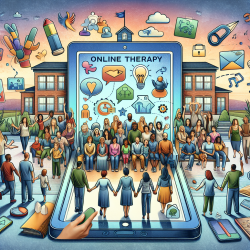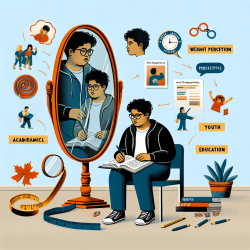In the ever-evolving world of quantum theory, the concept of retrocausality is gaining attention. This idea challenges traditional notions of cause and effect by suggesting that future events can influence past ones. As a practitioner in the field of education or therapy, understanding and applying these concepts can open new avenues for problem-solving and innovation.
What is Retrocausality?
Retrocausality is the notion that effects can precede their causes, a concept that turns our conventional understanding of time on its head. This idea is not just a philosophical musing but is grounded in the work of physicists like J.S. Bell, whose theorem highlights the peculiarities of quantum mechanics.
The Implications for Practitioners
For educators and therapists, embracing retrocausality can lead to innovative approaches in teaching and therapy. Here are some ways it might be applied:
- Problem-Solving: Consider future outcomes when addressing current challenges. This forward-thinking approach can help anticipate issues and create more effective solutions.
- Innovative Teaching Methods: Encourage students to think about how their current actions might be influenced by future goals or aspirations. This can foster a deeper understanding of cause and effect.
- Therapeutic Techniques: In therapy, exploring how future aspirations might impact current behavior can provide new insights into patient motivation and behavior change.
Diving Deeper into the Research
The dialogue between Huw Price and Travis Norsen provides a comprehensive exploration of retrocausal approaches to quantum theory. Their discussion delves into the implications of Bell’s theorem and how it challenges our understanding of causality.
For those interested in further exploring these concepts, the original research paper titled "Lapsing Quickly into Fatalism: Bell on Backward Causation" offers an in-depth analysis.
Encouraging Further Research
The exploration of retrocausality is not just an academic exercise but a call to action for practitioners to engage with these ideas actively. By integrating this perspective into your practice, you can contribute to a broader understanding of how future possibilities shape our present realities.
If you're intrigued by these concepts, consider attending conferences or webinars focused on quantum theory and its applications in education and therapy. Networking with other professionals interested in these ideas can also provide valuable insights and collaborative opportunities.
Conclusion
The concept of retrocausality offers an exciting frontier for practitioners willing to challenge traditional notions of time and causation. By embracing this perspective, you can enhance your problem-solving skills, innovate your teaching methods, and offer new therapeutic insights. As we continue to explore the mysteries of quantum mechanics, retrocausality stands out as a promising area for further research and application.










